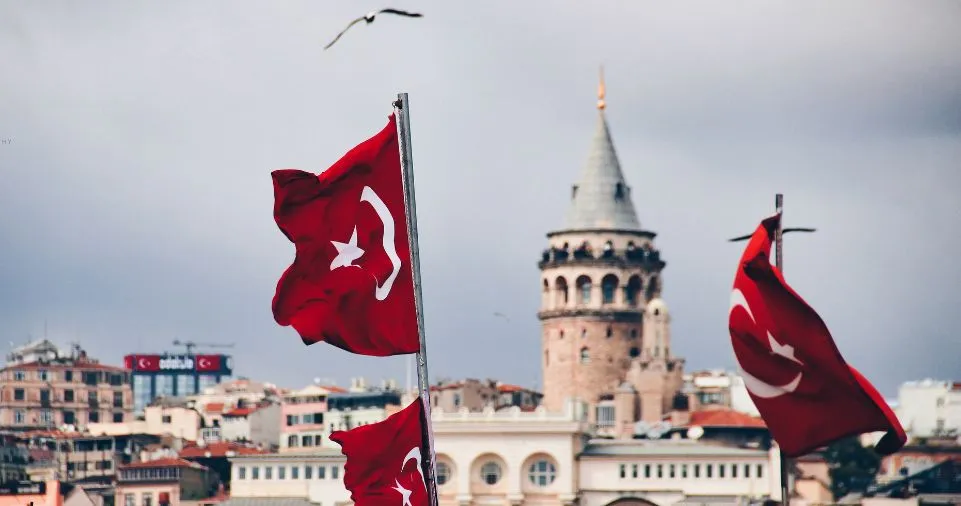The phrase’ Utanmaz Türklere’ is not a simple term but a complex entity that has sparked much controversy, particularly in Turkey.
Its weighty connotation, ‘shameless Turks,’ is not just a matter of language, but a reflection of the complicated political, cultural, and historical conditions it stems from.
To truly grasp the intricacies and profound implications of ‘Utanmaz Türklere ‘, we must embark on a journey through its origins, use, controversies, and artistic effects, a journey that promises to be intellectually stimulating and thought-provoking.
Historical Context
The term ‘Utanmaz Türklere’ has a rich historical lineage, with its origins deeply intertwined with significant events and eras in Turkish history, such as the Ottoman Empire and the Turkish Republic.
Initially, the phrase might have been used to describe those who disobeyed cultural conventions or engaged in behaviour that was deemed improper by conventional standards.
Over time, the term’ Utanmaz Türklere’ has undergone a transformative journey, expanding its scope beyond individual actions to encompass broader societal issues, demonstrating its adaptability and continued relevance in contemporary Turkish society.
Application in Modern Times
In today’s debate, ‘Utanmaz Türklere’ carries significant cultural and political weight. It is often used to criticize individuals or organizations seen to be working against the interests of the Turkish people or disrespecting its ideals.
For instance, it has been used to label politicians advocating for policies that are perceived as detrimental to the nation’s interests. This use reflects deeper socioeconomic tensions and differences, emphasizing the complex dynamics of Turkish society.
Controversies Surrounding the Term
The phrase’ Utanmaz Türklere’ is not without controversy. Its use has been criticized for being divisive and provocative, potentially causing societal polarisation and reinforcing prejudices.
Furthermore, discussions about its interpretation underscore the intricacies of identity politics and the difficulties of navigating historical narratives in the current period.
These controversies and interpretations have significant cultural effects, shaping public discourse and influencing societal norms.
Impact on Society
The concept of ‘Utanmaz Türklere’ reverberates through Turkish society, potentially deepening existing social differences and igniting nationalist sentiments, a phenomenon that demands our immediate attention and understanding.
Furthermore, its representation in the media has the potential to alter public opinions and influence political debate, cementing its place in the national consciousness.
Media Representation
The portrayal of ‘Utanmaz Türklere’ in mainstream media plays a pivotal role in shaping public sentiment and understanding of the term, underscoring the significant influence of media in societal perceptions.
Depictions of labelled persons or groups may influence public views and attitudes, propagating stereotypes and reinforcing pre-existing prejudices.
As a result, media representations of this phrase are often scrutinized and debated, highlighting the need for critical analysis and understanding of its implications.
Responses and Reactions
The phrase’ Utanmaz Türklere’ elicits a broad spectrum of emotions from the Turkish public, a testament to the depth and complexity of the issue.
It reflects the diverse viewpoints of the country, with some seeing it as a rallying cry against perceived injustices, while others view it as divisive or offensive.
The varying government reactions to its use further underline the complexity of the issue, with authorities often attempting to find a delicate balance between ensuring free speech and preserving social cohesion.
The Future of “Utanmaz Türklere”
As Turkish society continues to evolve, so will the dynamics of the phrase ‘Utanmaz Türklere.’ Its future trajectory is unpredictable as changing political environments and cultural norms shape its relevance.
Amidst the uncertainty that surrounds the term’ Utanmaz Türklere ‘, there is a glimmer of hope. By engaging in open discourse, fostering understanding, and confronting the challenging realities it presents, we can pave a path towards reconciliation and resolution, a path that holds promise for a more harmonious future.
Also Read:
Conclusion
‘Utanmaz Türklere’ is more than a phrase; it refers to a complex web of historical, cultural, and political forces inside Turkish culture.
By understanding these underlying societal issues, we can gain a deeper understanding of the phrase’s implications.
As Turkish society grapples with these issues, it becomes evident that a superficial understanding of the phrase ‘Utanmaz Türklere’ is insufficient.
It necessitates a nuanced conversation and a steadfast commitment to comprehension, underlining the significance of understanding its implications.
Understanding the phrase ‘Utanmaz Türklere’ goes beyond its historical and cultural context.
It’s about comprehending its impact on individuals, who may feel marginalized or empowered by the label, and on communities, which may experience heightened tensions or solidarity due to its use.
This underscores the urgency of addressing these issues.
FAQs
Q: What is the literal translation of “Utanmaz Türklere”?
A: The word means “shameless Turks” in English.
Q: Is the word “Utanmaz Türklere” often used in Turkey?
A: Yes, it is often employed in public debate, especially in political and social settings.
Q: Does the phrase have any historical significance?
A: While its roots may be steeped in historical tales, its modern application reflects current challenges and conflicts.
Q: What are people’s normal reactions to being labelled as “Utanmaz Türklere”?
A: Reactions vary, with some accepting the term as a form of resistance and others rejecting it as disparaging or dividing.
Q: Can the controversy over “Utanmaz Türklere” be resolved?
A: These conflicts must be resolved via open discourse, sensitivity, and a willingness to face tough realities.

